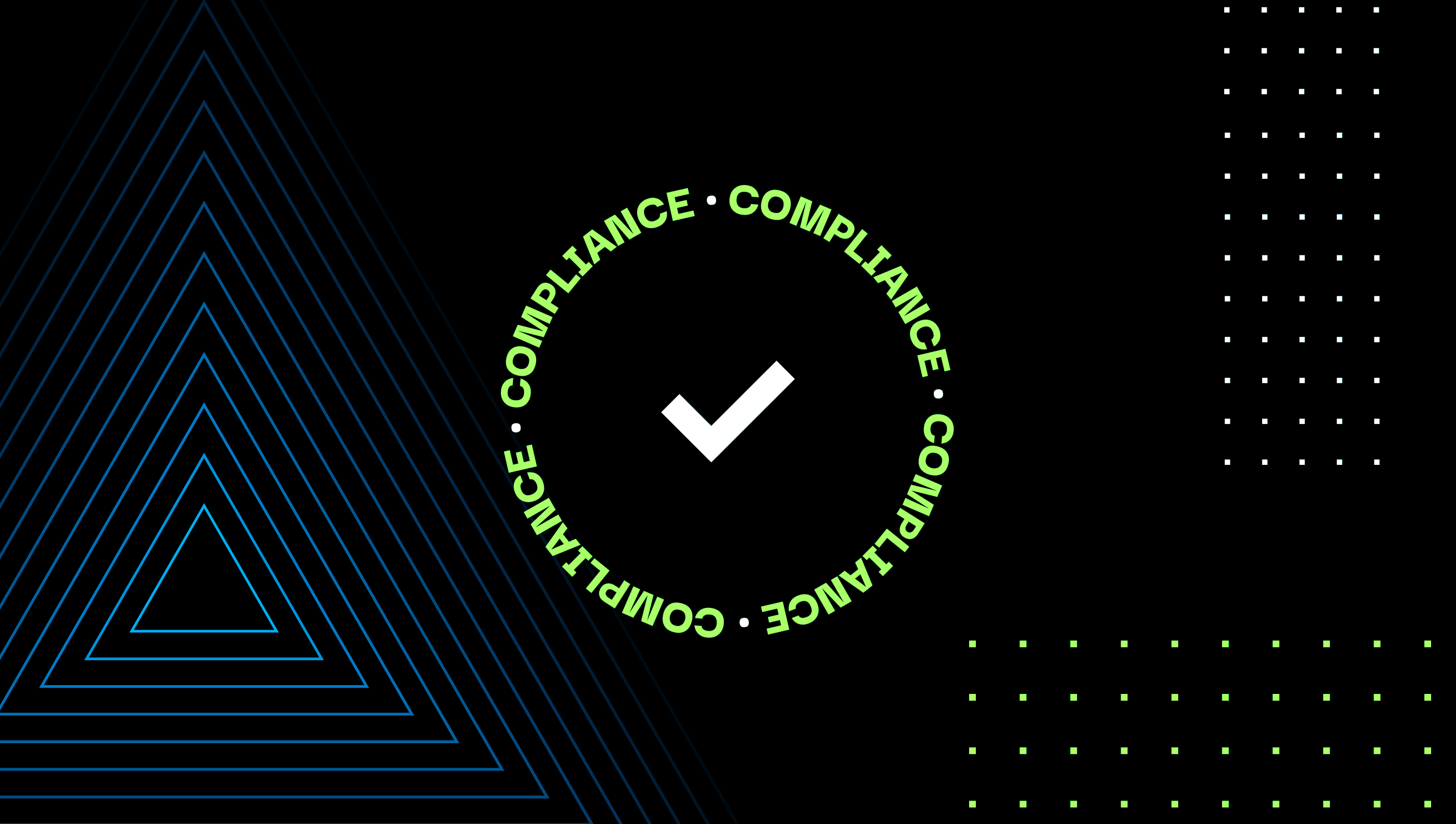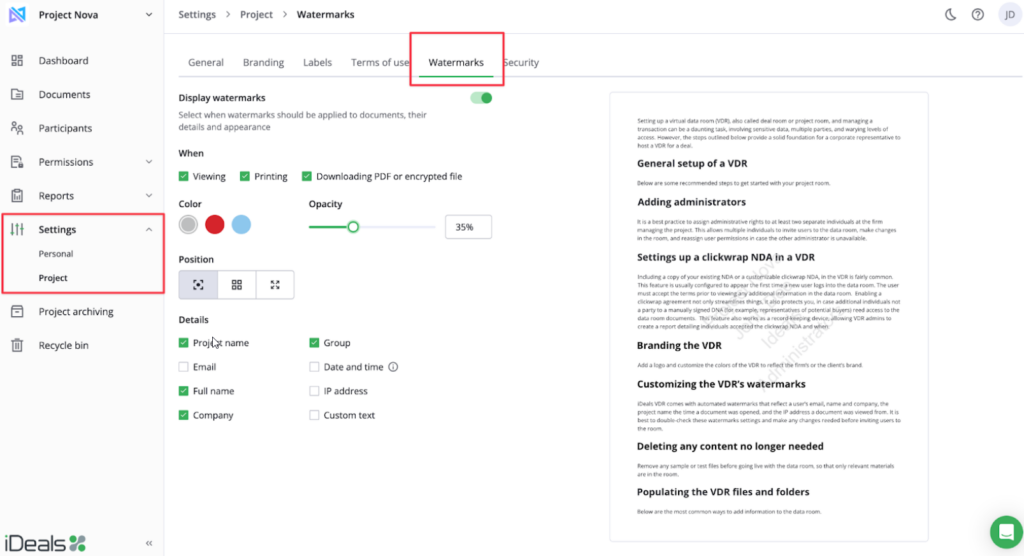
The virtual data room market, valued at $1.65 billion in 2019, is expected to triple by 2025.
That’s not a surprise, as these sophisticated platforms completely changed how businesses handle sensitive data, conduct business operations, and diligence processes. Once reliant on physical data rooms, companies now turn to digital platforms more often.
To keep virtual data rooms safe, their developers come up with new protection mechanisms and compliance methods. In this article, we talk about the importance of virtual data room compliance. Also, we break down the key regulations, best practices, and VDR features you need to know.
The importance of data room compliance
Safeguarding sensitive information, protecting brand reputation, and mitigating financial risks are major reasons to prioritize data room compliance.
The average cost of a data breach reached $4.45 million in 2023, according to IBM and Ponemon Institute.
Beyond financial losses, data breaches can impose noticeable reputational damage. No surprise that compromised data rooms may even devastate customer trust. 66% of consumers stated a reduced loyalty to companies experiencing data breaches.
Compliant data rooms
Overall rating:
4.9/5
Excellent

Overall rating:
4.8/5
Excellent

Overall rating:
4.7/5
Excellent
Key regulations and standards
With virtual data rooms handling confidential information, it’s essential to stay on top of data protection laws. Regulations like the General Data Protection Regulation (GDPR) and the California Consumer Privacy Act (CCPA) became standards for how companies process personal data.
Let’s delve into key data privacy regulations and the security certifications that you should be aware of when choosing a VDR.
| Regulatory compliance name | Description | Industries |
| ISO/IEC 27001 | International standard outlining information security management system (ISMS) requirements. | Diverse industries, including finance, healthcare, and government. |
| SOC 1 and SOC 2 | Reports on service organizations’ controls related to financial reporting (SOC 1) and broader security, availability, processing integrity, confidentiality, and privacy (SOC 2). | Diverse industries, especially those handling customer data. |
| GDPR | European Union’s comprehensive data protection law governing the collection, storage, processing, and transfer of personal data. | All organizations processing personally identifiable information of EU residents. |
| HIPAA | US law protecting patient health information and ensuring its confidentiality, integrity, and availability. | Healthcare industry. |
| FISMA | US law establishing cybersecurity requirements for federal agencies and contractors handling sensitive information. | US government agencies and contractors. |
Compliance features of virtual data rooms
The VDR providers offer a range of sophisticated features to improve communication, distribution of board materials, and data storage during the due diligence process. However, the following advanced security features should be included to maintain compliance and data integrity.
Data encryption
By employing robust protocols like 256-bit key length and AES-256 (Advanced Encryption Standard), sensitive documents are rendered unreadable to unauthorized parties both while stored (at rest) and while being transferred (in transit). This dual protection safeguards against data breaches and ensures compliance with GDPR and HIPAA regulations.
Access controls
Role-based permissions (also known as granular access controls) enable administrators to give different levels of user access based on their roles and responsibilities. It’s suggested that only minimum document access should be given to reduce the risk of unauthorized data exposure.
In case of role changes, you can update and change the permissions anytime.
Audit trails
The audit trail functions are necessary for the swift detection of suspicious activity. The VDR platforms generate detailed logs of user activities, including file access, downloads, and sharing. These records serve as evidence in case of security incidents, regulatory audits, or legal disputes.
Document watermarking
To prevent unauthorized sharing and protect intellectual property, VDRs often incorporate document watermarking. This tool integrates discreet markings within documents, making it clear who owns the information. Watermarking helps maintain control over sensitive documents and can be used as evidence in case of copyright violation.

Data backup and recovery
Data loss can cause severe financial and reputational damage. To prevent these consequences, ensure that the VDR provider implements a robust backup and disaster recovery plan. This should include multiple layers of data redundancy across geographically dispersed data centers to protect against hardware failures, natural disasters, and cyberattacks.
Best practices for ensuring compliance using VDRs
Strong data room compliance is of utmost importance for protecting sensitive information and confidential documents. By following industry best practices, organizations can strengthen their security measures. They are the following:
- Regularly updating and reviewing access permissions. Unlike traditional data rooms, VDRs offer dynamic control over access, allowing for frequent updates to user permissions based on changing roles and responsibilities.
- Conducting compliance audits and risk assessments. Regularly assess VDR configurations and user behavior to identify vulnerabilities and take appropriate measures.
- Training employees on compliance policies and VDR usage. Educate employees about data protection regulations, VDR features, and best practices. Some VDR vendors offer training videos, manuals, and courses on their products.
- Implementing strict data retention and disposal policies. Define clear policies for data retention periods and secure data deletion processes to comply with international laws.
- Collaborating with VDR providers to ensure they meet compliance standards. Periodically contact vendors to stay informed about security updates, compliance certifications, and support services.
Summary
Now let’s quickly summarize the key takeaways from the article.
- Since the number of cyber crimes has increased, companies must mitigate cyber risks with reliable VDR software.
- Data breaches are costly and damaging to reputation. Investing in data room compliance is essential to protect the business.
- Adherence to regulations like GDPR and CCPA is mandatory for businesses handling personal data.
- Data encryption, access controls, audit trails, document watermarking, and data backup are essential VDR features for maintaining compliance.
- Regularly review access permissions, conduct compliance audits, train employees, implement data retention policies, and collaborate with VDR providers to ensure ongoing compliance.


